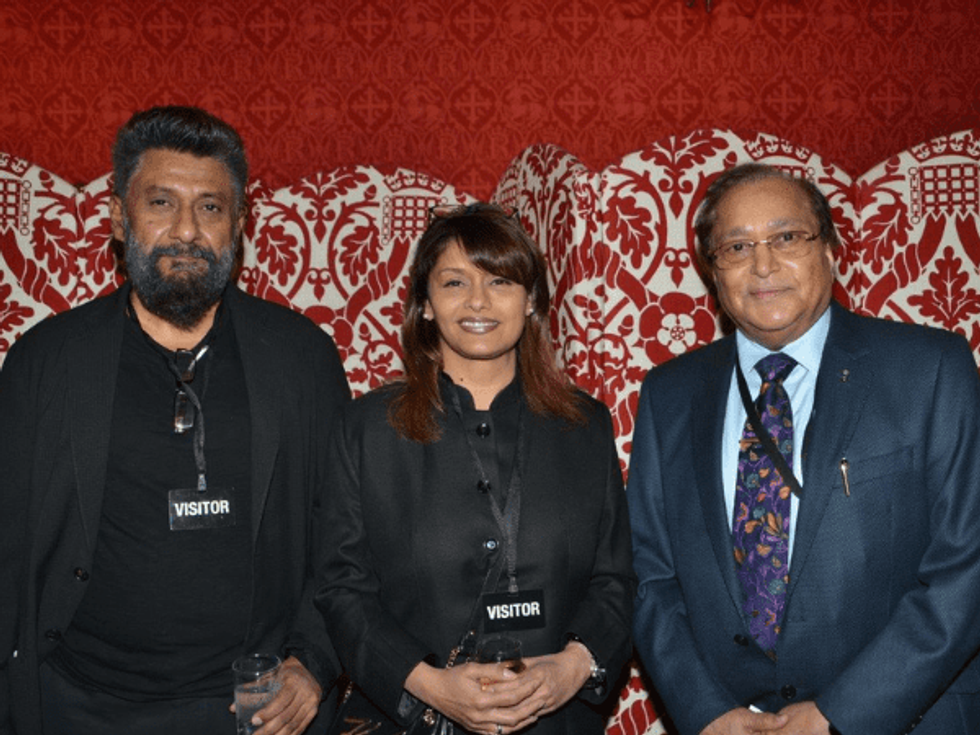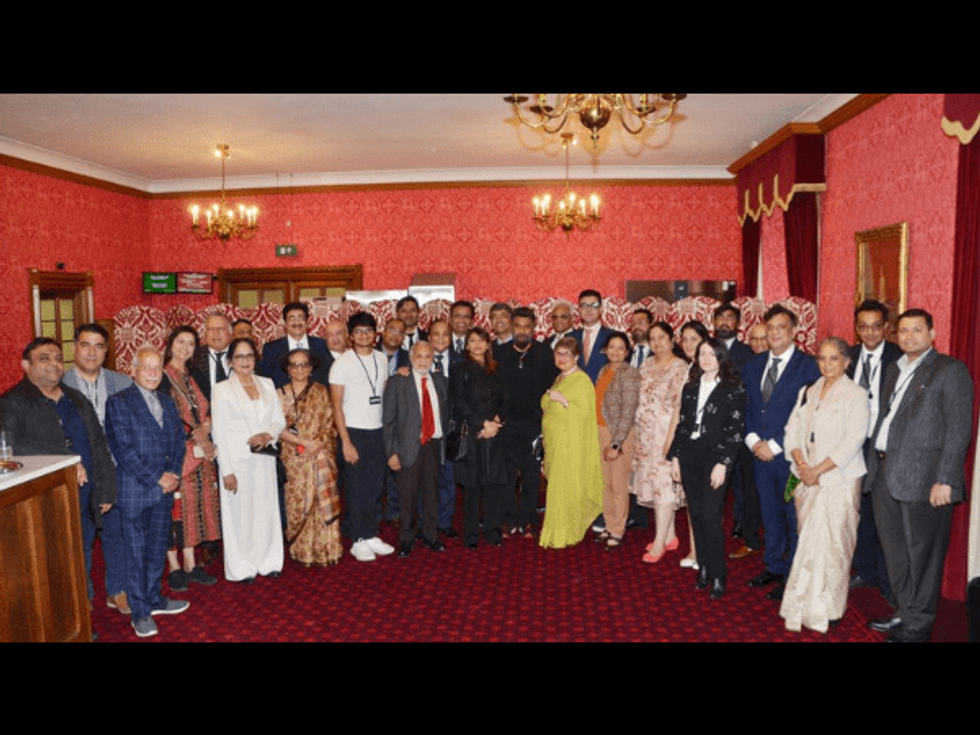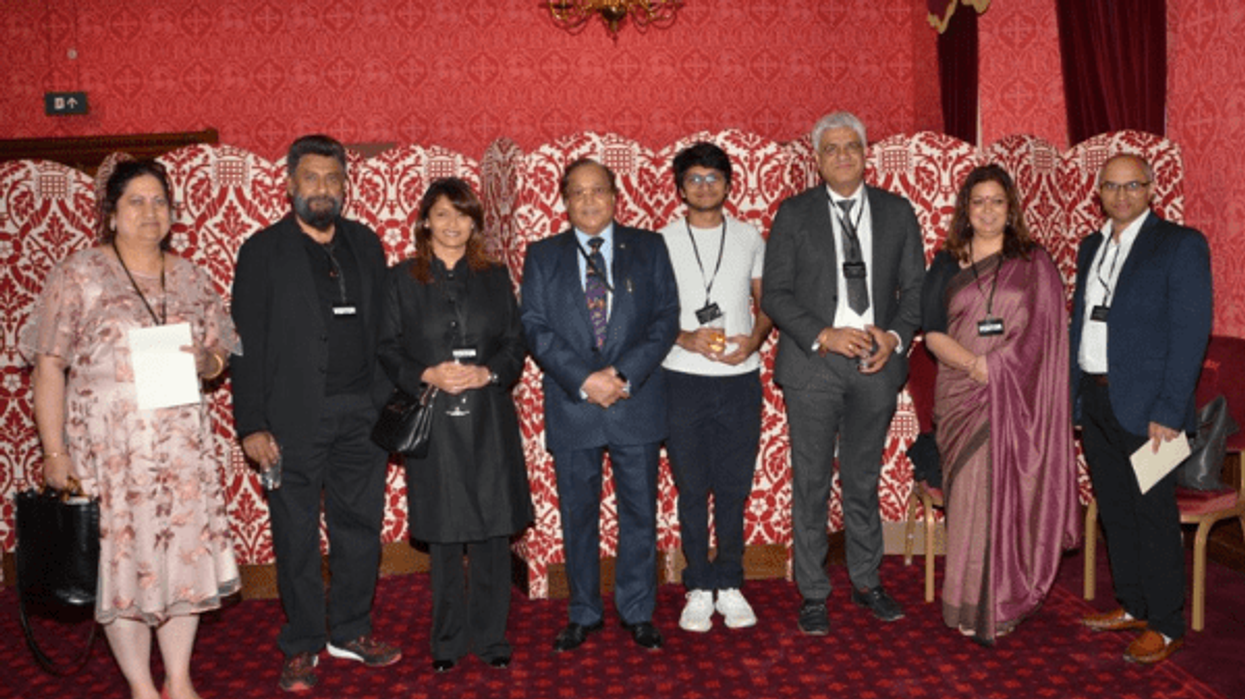THE House of Lords on June 9 hosted a lunch in the honour of Indian filmmaker Vivek Agnihotri and actor-producer Pallavi Joshi, his spouse.
The luncheon party for the makers of Bollywood film ‘The Kashmir Files’ was hosted by Lord Rami Ranger CBE.
In his welcome address, Lord Ranger said, “'The Kashmir Files' movie touched the hearts of the people. The atrocities perpetrated by the film for many years came out. People were left to suffer at that time. I have seen this film, and seeing the atrocities made my heart cry. My family was also a victim of post-independence violence, and my father was assassinated by fundamentalists in Pakistan.

Due to my father’s honour, we were all able to come to India, sitting in the coal compartment of the train. Thanks to the hard work of my mother, all five of my five brothers became commissioned officers in the Indian Army. Religion in the true sense is for peace, not to degrade or harm people. I salute prime minister Modi for repealing Article 370. The people of Kashmir will now be able to reap the full benefits of India’s development.”
The film, which got released earlier this year is based on interviews of first-generation victims and covers the sufferings endured by the Kashmiri Pandit community in India’s Kashmir region which eventually led to their exodus in 1990. It features veteran actors such as Anupam Kher, Pallavi Joshi, Mithun Chakraborty in pivotal roles and made a massive impact in the box office, both in India and abroad.
Speaking on the occasion, Joshi said, “We are all here today for a special purpose. We have witnessed the way Kashmiri Pandits have been harassed. The whole matter was ignored, it was systematically sidelined. The whole community was evacuated from the valley. We have tried to do them justice through this film.”

Agnihotri said, “Lord Ranger’s father was martyred, but he worked hard, and I appreciate his success. We have proved that we are all diligent. Because of this, Indians are looked upon with respect in every field all over the world. The way the government of India and Modi handled the Covid-19 epidemic and helped India vaccinate and help people around the world is commendable.
"‘The Kashmir Files’ were an attempt to give voice to the voiceless. Our next film will be about Indian scientists, and the next film will be ‘Delhi Files’. We must fight terrorism together. But the unfortunate thing is that we are considered Islamophobic.”
Member of parliament Theresa Villiers, who was also present on the said, “'The Kashmir Files' has uncovered a horrible crime story. It shows the way the Hindus were ignored. Many of my fellow MPs have not raised their voices on the rational issue.”
Lord Bhikhu Parekh said, “Lord Rami Ranger is my companion and has done great deeds for the Indians in this country. The dream of present-day India is to become a world Guru, but Gandhiji never went abroad after coming to India. The Chinese premier once said that if you show your strength to others, the harm will outweigh the benefits.”
Other pioneers also made speeches on the occasion.




